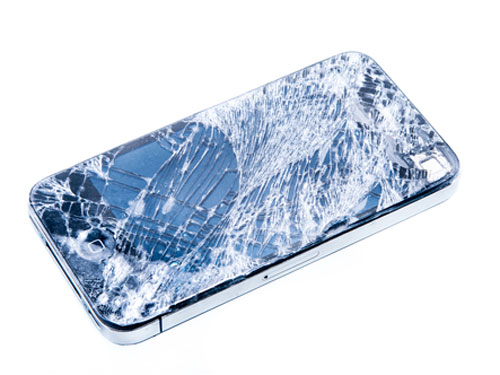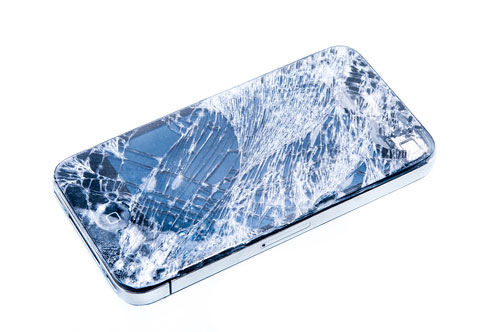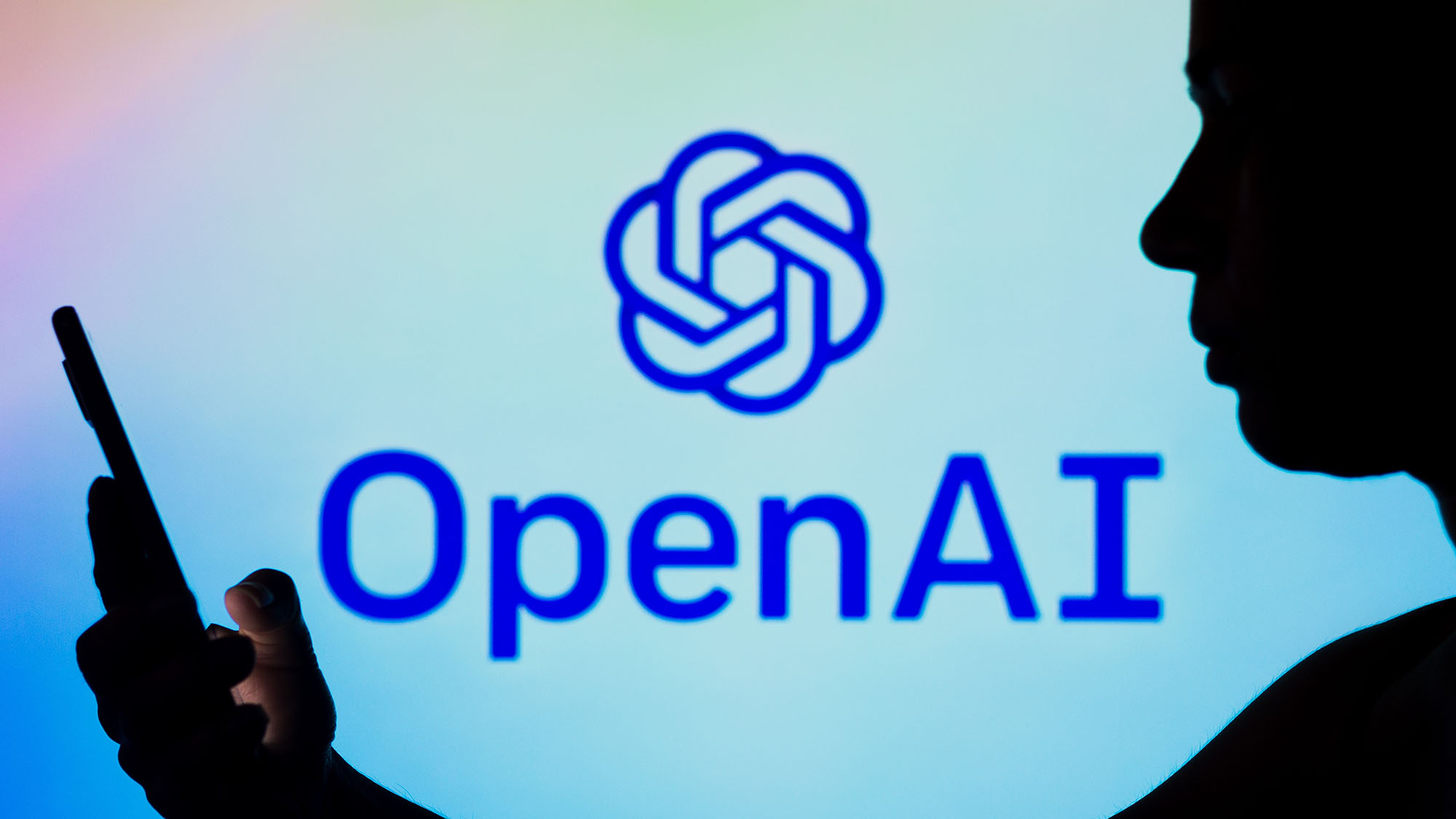How Jailbreaking Puts Your iPhone at Risk
Many people 'jailbreak' iPhones without realizing the security risks. Here's what jailbreakers need to know, and do, to keep devices safe.


Apple iPhones have a wide selection of apps, and iPhone users can rest easy knowing that their mobile devices are among the most secure available. But some iPhone users want to get into the guts of their handsets and "jailbreak" their iPhones in order to add apps and modifications that aren't authorized by Apple.
Jailbreaking sounds great: Get more capabilities and stick it to The Man at the same time. Security professionals, though, will tell you that jailbreaking an iPhone, iPad or iPod Touch is a bad idea — very bad.
"If you jailbreak your device, it's now up to you to keep it secure," said Mikko Hyppönen, chief research officer at antivirus software maker F-Secure in Helsinki, Finland.
MORE: 10 Pros and Cons of Jailbreaking Your iPhone or iPad
Annoying as the restrictions Apple places on iOS users and apps may be, they exist for a reason. Unlike with Android devices, there's little a user can do to make iPhones (or iPads) more secure, but a lot a user can do to make iDevices much less safe. Jailbreaking an iPhone could let in hackers or malware, or possibly even "brick" the handset, turning it into a very expensive paperweight.
A brief history of jailbreaking
Jailbreaking modifies the iOS operating system, usually via specialized software on a connected PC or Mac, letting an iPhone or iPad run "off-road" apps and features. These can be free knockoffs of games or new interfaces, such as one in which users unlock the phone by "drawing" passwords instead of tapping in a PIN.
Sign up to get the BEST of Tom's Guide direct to your inbox.
Get instant access to breaking news, the hottest reviews, great deals and helpful tips.
Early iPhone users jailbroke their devices because back in 2007 and 2008, there weren't many apps to choose from. That changed with the introduction of the App Store, but even today, many users want more control over what their iPhones can do. For example, the jailbreak-only app Activator lets you customize button functionality in iOS, and even create triggers for the iPhone 5s' TouchID fingerprint reader.
"It used to be that jailbreaking was the only way to get third-party apps on your device at all," said Jonathan Zdziarski, a Boston-area security researcher and expert on iOS forensics. "I helped develop the first jailbreaks, and back then there was no [software development kit], no App Store and no security on the phone to protect users, anyway."
Many of those reasons no longer apply, Zdziarski noted. He said that while he has jailbroken devices for research and system engineering, there's little that a jailbroken iPhone can do that a standard iDevice can't, and none of it is anything the average user needs.
The pitfalls of jailbreaking
The biggest problem with jailbreaking is that it disables the "sandboxing" feature of iOS, a key part of the operating system's security architecture.
Sandboxing makes sure third-party apps access only certain pieces of user data and certain parts of the iPhone's operating system. Such apps lack so-called "root" privileges and hence can't access other apps or the deeper parts of iOS. (Keeping apps in their sandboxes and out of the operating system also reduces system crashes.)
On a non-jailbroken iPhone, there's little chance malicious code can damage the system. No app can flip through an address book, photos or location data without telling the user about it. Disabling sandboxing, however, lets apps access user data without having to ask.
"Once you have root-level access to a Unix device, all security bets are out the window," said Chet Wisniewski, senior security advisor at Sophos Canada in Vancouver. (Like Mac OS X, iOS ultimately derives from the 40-year-old Unix operating system.)
Apple doesn't expect users to grant root access to apps, and it doesn't build iOS to keep things safe once an iPhone, iPad or iPod Touch is jailbroken.
One of the worst-kept secrets on the Internet is the root password for iOS (for those interested, it's "alpine"). The fact that the password is so commonly known, and that Apple has not changed it in seven years, shows that the company has no intention of ever giving root access to a third-party app or feature.
Furthermore, Apple clearly states that it sees jailbreaking as a violation of the warranty agreement. So if you do it, say goodbye to AppleCare.
Then there is the issue of trust. While there are preferred sources of apps for jailbroken devices, none are as tightly controlled as the App Store — that's the point of jailbreaking in the first place. But that means you're trusting a stranger, not Apple, with your device.
"If you can't validate the app, or don't trust who wrote it, do you really want to run it?" Wisniewski asked.
Introducing security threats
None of this means that un-jailbroken iPhones have no security flaws. Every few weeks, a video is posted to YouTube showing how to bypass an iPhone's screen lock and access its contact list, make calls or send emails.
But that's nothing compared to the ever-evolving assortment of security threats Android users have to deal with: premium-SMS hijackers, keyloggers, banking Trojans, botnets and other forms of malware that until recently were seen only on Windows PCs.
As a practical matter, Hyppönen said, the risk of being infected by malware isn't much higher on jailbroken iPhones than on non-jailbroken ones — at least not yet. Some of that is simply because Android systems are a bigger and more lucrative target.
MORE: Jailbreak, Root or Unlock — What's the Difference?
But, as Hyppönen noted on Twitter in 2012 on the fifth anniversary of the iPhone's debut, no one had ever found malware for non-jailbroken iOS devices outside a testing lab — a fact that still holds true.
"It's not just luck," Hyppönen tweeted. "We need to congratulate Apple on this."
Security tips for jailbroken iOS devices
If, despite the risks, you still insist on jailbreaking your iDevice, there are a few things you can do to keep it a bit more secure.
Change the root password to something other than "alpine." Most malware for jailbroken iPhones relies on the fact that few jailbreakers change the root password. Once you've jailbroken the phone, you will probably have received the Cydia app, an app repository for jailbroken iDevices. Cydia has several sets of instructions on how to change the root password.
Download and install antivirus software on your iDevice. Because Apple won't let iOS apps closely monitor other processes, some of the "antivirus" apps in the App Store don't actually protect users from malware. One that does is Intego VirusBarrier, which scans files, websites and attachments, but not other apps. Unfortunately, there doesn't appear to be any iOS app in Cydia or the App Store that can match the strong protection provided by Android antivirus apps.
Be aware of what you're installing, and where it comes from. Malicious apps are often designed to look exactly like popular, harmless ones. Don't trust free versions of games that normally cost a few dollars.
There's also the possibility that a badly written app or firmware update, let alone a malicious one, could "brick" the phone. Unlike a desktop computer, there's really no way to factory restore the device when that happens.
"Is it really worth it because you want a free copy of 'Angry Birds'?" Wisniewski said. "Probably not."
Follow us @tomsguide, on Facebook and on Google+.
-
house70 Basically, if you don't know/not sure of what you're trying to do, don't do it.Reply
Same advice I keep putting out for Android-based phones, as well.
ANY OS is vulnerable if certain default settings (in there to protect the system) are modified/disabled.
Common sense. Also common sense to stop bashing one OS as not being inherently as secure as another. Only difference is, users of Android are more prone to experiment with their devices, while iOS users are a more complacent bunch. -
CraigCore2 "But that's nothing compared to the ever-evolving assortment of security threats Android users have to deal with: premium-SMS hijackers, keyloggers, banking Trojans, botnets and other forms of malware that until recently were seen only on Windows PCs."Reply
That just sounds like Android is bad. Which its not. I haven't heard of any SMS hackers, keyloggers, banking Trojans or whatnot that apply for here in the US or in western Europe. The bank Trojan that I know of was for Korean banks. Its all in asian countries and whatnot. I don't think in the years that Google play (or the android market) has been running that there has been any malicious content. Yes there has been plenty of adware. But nothing appeared to be malicious. Android is quite secure as long as you aren't an idiot. -
Christopher1 Here is a better solution: Apple puts out an application that allows jailbreaking WITHOUT having to rely on external sources.Reply
Just like they are required to do in several country's overseas now.
There is no reason why Apple should have total control over what you can load onto your iPhone/other device. None. -
NuclearShadow ReplyHere is a better solution: Apple puts out an application that allows jailbreaking WITHOUT having to rely on external sources.
Just like they are required to do in several country's overseas now.
There is no reason why Apple should have total control over what you can load onto your iPhone/other device. None.
The control grants them extra revenue which they will not release themselves of. If you were to develop a new game for mobile devices with Android you could list it on several market places even sell if directly from your own website if you so desired. This means that Google may never see any portion of the profits of your app other than Google Play sales.
What Apple does is anti-consumer and anti-competition but profitable. Your app every time it sells they will profit. The popularity of their devices shows that the majority of consumers simply do not mind this restriction enough to seek out another product. The only thing that is going to change this is if consumer outlook changes and starts to heavily sway and only purchasing the competitions products for this very reason.
Morally you are right, but in a business point of view. If you a Apple executive or a stock holder this change would hurt you and we can't expect them to damage their profits for a minority opinion. -
virtualban ReplyHere is a better solution: Apple puts out an application that allows jailbreaking WITHOUT having to rely on external sources.
A friend of mine who got an iPhone as a gift said from personal experience that the only way to really use the iPhone as smartphone was to jailbreak it. That's why Apple ecosystem deserved the name 'Jail'.
Just like they are required to do in several country's overseas now.
There is no reason why Apple should have total control over what you can load onto your iPhone/other device. None. -
LePhuronn Read the article title and thought "hmm, this might be a bit biased" then read the opening line "iPhone users can rest easy knowing that their mobile devices are among the most secure available".Reply
So, accessing your entire phone without passing the lock screen because Siri is always listening is secure, is it?
Clueless article or blatant propaganda - you decide. -
SamsChoice ReplyRead the article title and thought "hmm, this might be a bit biased" then read the opening line "iPhone users can rest easy knowing that their mobile devices are among the most secure available".
So, accessing your entire phone without passing the lock screen because Siri is always listening is secure, is it?
Clueless article or blatant propaganda - you decide.
This website, also many others, have an arrangement with Apple. They get money and hardware in exchange for lots of positive reviews.
